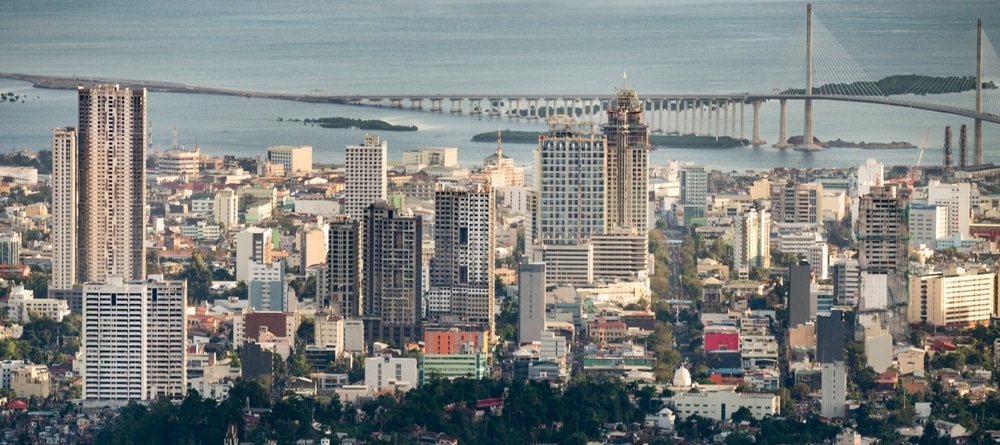Cebu is set for expansion, with the local government’s commitment to sustainable development and innovation ensuring its continued prominence in the Philippines’ economy.
But according to projections from the Department of Energy (DOE), Cebu’s energy demand is expected to reach approximately 1,400 MW by 2026 and exceed available supply by 2027, unless additional baseload power facilities are built.
Additionally, the National Grid Corp. of the Philippines (NGCP) previously stated that Cebu requires expanded energy infrastructure due to its fast-growing population and rising post-pandemic investments.
NGCP also reported that Cebu represents 50% of the power demand in the Visayas region. More specifically, Cebu City, served by the Visayan Electric franchise, accounts for half of the province’s energy consumption.
About the TVI project
Aboitiz Power Corp. (AP) operates a coal plant in Toledo City, the Therma Visayas Inc. (TVI) with two units, each producing 170 MW. The company is currently expanding these facilities with the construction of TVI 3, a 150-megawatt (MW) coal facility, scheduled for completion by 2027.
TVI, a joint venture between AboitizPower and Vivant Corp., is one of only two coal-fired power plants in the Philippines equipped with a coal dome facility, the other being its counterpart, Therma South Inc.
Unlike traditional l methods, coal domes help reduce coal dust emissions, which would otherwise contribute to air pollution and pose health hazards. Additionally, by protecting the coal from weather elements such as rain, these domes prevent runoff, reducing the risk of water contamination. Enclosing the coal also improves the safety and efficiency of storage and handling, minimizing environmental risks associated with coal management.
According to AP, the project’s focus remains on meeting demand while offering consumers affordable electricity with minimal environmental impact.
Setting the record straight
In recent months, environmental advocates and renewable energy proponents have shifted their attention to the expansion of the TVI coal power plant. One of these is the Philippine Movement for Climate Justice (PMCJ) Cebu, which held a protest last September 13 against the project.
The group’s media statement and social media posts indicated that over 70 local residents participated in the demonstration on September 13, which included seniors and first-time demonstrators who faced both rain and police monitoring. The group also asserted that the project was progressing without the necessary local health and environmental permits.
But clearly, there were inaccuracies in the claims made. TVI had obtained the necessary permits for the project prior to the Department of Energy imposing a moratorium on the construction of additional coal-fired power facilities during the previous administration. This moratorium remains in effect today.
Moreover, the barangay captains from the three barangays in Toledo City that host the TVI facility released a statement denouncing the protest. While PMCJ Cebu asserted that residents from their villages participated in a demonstration against the plant expansion, the barangay residents insisted that no local residents attended the protest, claiming that all participants were brought in from outside by the climate organization.
The barangay leaders emphasized that TVI has strong support from the local community and has been a responsible corporate citizen. In fact, the barangays have gained from several community engagement initiatives implemented by TVI and continue to benefit from the significant number of well-paying jobs it provides.
An opinion piece referred to this situation as a case of “blackwashing,” which occurs when environmental groups assert that businesses, practices, individuals, or corporations are much more harmful to the environment than they actually are.
TVI to help fuel Cebu’s growth
Before deciding on the TVI expansion, AP had evaluated other options, noting that the alternative would be a 150 MW liquefied natural gas (LNG) facility. They highlighted that renewable energy sources, such as solar or wind, are not feasible in Cebu due to a lack of available land for a 150 MW project and no suitable resource areas. Consequently, the most financially viable option for consumers would be to establish another coal facility, with an emphasis on ensuring it operates responsibly.
According to the DOE website, “Now that clean coal technologies are available, the demand for coal has remained steady despite the current stringent standard on environmental concerns.” This suggests that advancements in clean coal technology are enabling the coal industry to address environmental concerns more effectively, ensuring continued reliance on coal as an energy source while minimizing its ecological impact.
Aside from using a coal dome facility, the TVI power plant utilizes Circulating Fluidized Bed technology and the Best Available Control Technology to reduce coal dust emissions that may negatively impact the atmosphere.
In line with its commitment to creating a brighter future through cleaner and more efficient power generation, TVI is making significant progress in the Visayas as a prominent electricity provider.


